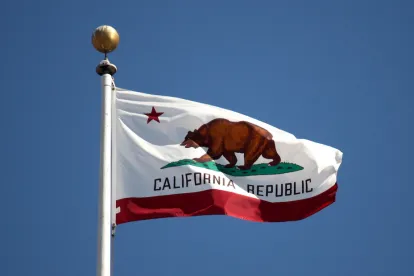On September 9, 2020, California Governor Gavin Newsom signed Assembly Bill 1867 (“AB 1867”), mandating supplemental paid sick leave for employees of companies with 500 or more employees. AB 1867 fills gaps left open by the federal Families First Coronavirus Relief Act (“FFCRA”) (previously discussed here) and the Executive Order signed by Newson on April 22, 2020, which only applied to essential food workers (previously discussed here).
The sick leave portions of the law are effective immediately and covered employers must make the leave available no later than September 19, 2020.
Who Does The Law Apply To?
The law covers all employees of private entities that have 500 or more employees in the United States. Employees are counted the same way as in the FFCRA, 29 C.F.R. § 826.40.
AB 1867 also covers employees of public entities that employ health care providers or emergency responders and that have elected to exclude such employees from emergency paid sick leave under the FFCRA.
The covered employee must leave their home or other place of residence to perform work for the employer.
What Benefits Must Be Provided?
The worker is entitled to supplemental paid sick leave at an hourly rate equal to the highest of:
-
the worker’s regular rate of pay for the last pay period;
-
the state minimum wage; or
-
the local minimum wage
An employer does not have to pay supplemental paid sick leave of more than $511 per day and $5,110 in aggregate total–matching the maximum benefits under federal law.
AB 1867 prohibits an employer from requiring an employee to use other paid or unpaid leave, paid time off, or vacation time in lieu of, or before, the employee uses COVID-19 supplemental paid sick leave.
How Much Leave Must Be Provided?
-
Full-time employees or employees scheduled to work an average of at least 40 hours per week in the two weeks before the leave is taken are entitled to 80 hours of supplemental paid sick leave under this new law.
-
Part-time employees with normal a weekly schedule are entitled to supplemental paid sick leave equal to the total number of hours the employee is normally scheduled to work for the employer over two weeks.
-
Part-time employees who have variable hours may take fourteen times the average number of hours the employees worked each day in the six months preceding the date of the supplemental paid sick leave. For part-time employees that have worked for the employer for fewer than six months but more than fourteen days, the number of hours is calculated over the entire period that the worker has worked for the employer.
-
If the part-time employee works variable hours and has worked for the employer over a period of 14 days or fewer, the employee is entitled to sick leave in an amount equal to the total number of hours worked.
If an employer already provided supplemental paid leave dating back to March 4, 2020, for the reasons listed in the law, but did not pay the worker at least the amount provided for in the law, the employer may retroactively provide supplemental pay to the employee. If an employer does this, the prior sick leave will count towards the total number of hours of supplemental paid sick leave to which the employee is entitled.
If an employer already provided an employee with a supplemental benefit, such as supplemental paid leave, for the reasons and in an amount outlined in the law, those hours count towards the total number of hours of supplemental paid sick leave to which the employee is entitled.
When Benefits Be Provided
Immediately upon oral or written request, a covered employer must provide an employee supplemental paid sick leave if the worker cannot work, because:
-
the worker is subject to a federal, state, or local quarantine or isolation order related to COVID-19;
-
the worker is advised by a health care provider to self-quarantine or self-isolate due to concerns related to COVID-19; or
-
the worker is prohibited from working by the worker’s employer due to health concerns related to the potential transmission of COVID-19.
The requirement to provide COVID-19 supplemental paid sick expires on December 31, 2020, or upon the expiration of federal sick leave provided for in the FFCRA, whichever is later. A worker taking supplemental paid sick leave when the law expires can take the full amount of COVID-19 supplemental paid sick leave to which the worker is entitled.
Updated Wage Statements
Employers will need to update their wage statements to reflect the amount of paid sick leave – including supplemental paid sick leave, available to an employee. The wage statement requirement is not enforceable until the next full pay period following September 9, 2020.
Food Sector Employees
The law also essentially codifies the Executive Order N-51-20, by requiring hiring entities to provide food sector workers supplemental sick leave if they are unable to work due to COVID-19. It also requires any operation that stores, prepares, packages, serves, vends, or otherwise provides food for human consumption at the retail level to permit workers to wash their hands every 30 minutes and additionally as needed. Our write up on Executive Order N-51-20 is here.
Notice Requirements
Hiring entities must display a poster in a conspicuous place that contains information about supplemental paid sick leave under the law. If an employer’s workers do not frequent a workplace, the employer may satisfy the notice requirement by disseminating notice by electronic means. The Labor Commissioner will provide additional guidance on notice requirements.




 />i
/>i

